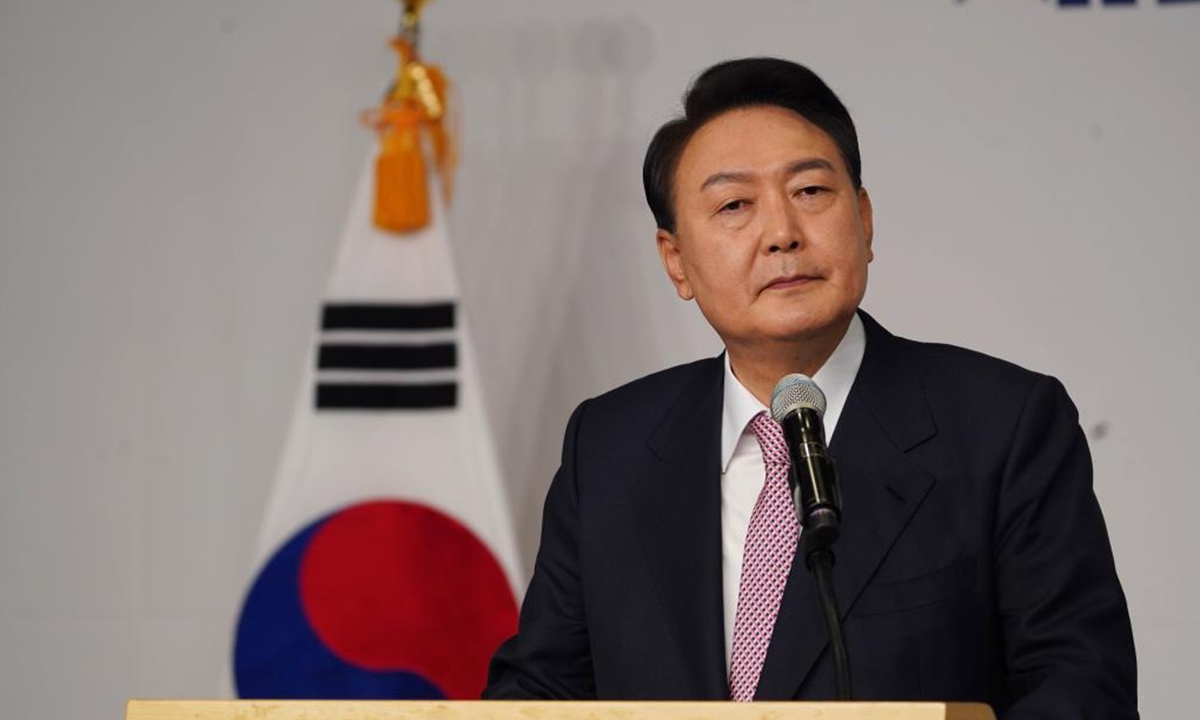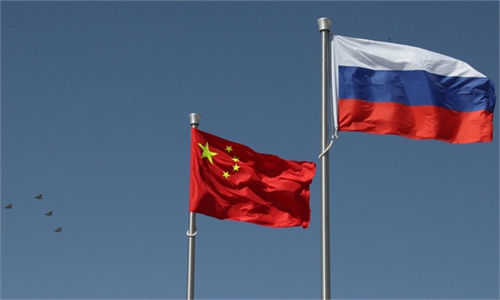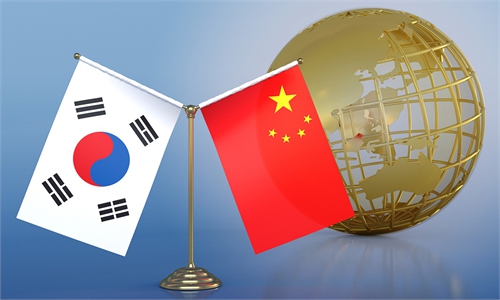Yoon meets with China's top legislator; remarks show Beijing’s message over sensitive issues like THAAD ‘received’

Yoon Suk-yeol Photo: Xinhua
South Korean President Yoon Suk-yeol met with China's top legislator Li Zhanshu in Seoul on Friday, saying that he hopes to further develop ties with China against the backdrop of the two countries' 30th anniversary of establishment of diplomatic ties, and stressed the need for close communication to make sure the US THAAD installed in South Korea will not be a hurdle to bilateral ties, South Korean media reported.
Analysts said that since President Yoon took office this year, China-South Korea relations have gone through an adjustment period. With Li's visit to South Korea, it is likely that the two sides will come to a better agreement on some major issues, given that the South Korean leader's remarks seem to indicate that Seoul has received and better understood Beijing's position on some sensitive issues, and that following the US is not completely in South Korea's national interests.
Besides the THAAD issue, according to Yonhap News Agency, Li and Yoon also hailed the development of bilateral ties over the past three decades, and looked for further development in the future to benefit the two countries' people.
Yoon, who has expressed condolences to the victims of the earthquake in China's Sichuan, invited Chinese President Xi Jinping to visit Seoul during the meeting with Li, chairman of the National People's Congress Standing Committee, China's top legislative body.
As a US ally and important strategic partner of China, South Korea is in a delicate situation as the confrontation between the US and China intensifies, not only in terms of supply chains, but also in regional security.
"THAAD is one of the biggest problems between China and South Korea. China opposes the US using South Korea's territory to threaten China's national security and thus affect bilateral relations with Seoul. I think the Yoon administration has received China's solemn position," Lü Chao, an expert on Korean Peninsula issues at the Liaoning Academy of Social Sciences, told the Global Times on Friday.
"It is not trivial when China's national security is involved. If China loosens its stance, other similar problems will arise that will have a more serious impact on China-South Korea relations, because the US will definitely swoop in and continue to magnify the problem," Lü added.
Before the meeting with Yoon, Li spoke with National Assembly Speaker Kim Jin-pyo on Friday, exchanging views with Kim on the Korean Peninsula situation, with Kim calling on the two sides to strengthen communication and play active roles to resolve the North Korea nuclear issue.
The two sides agreed to beef up parliamentary cooperation between the two countries, Yonhap reported.
Yang Xiyu, senior research fellow at the China Institute of International Studies, told the Global Times on Friday that "one important purpose of the visit is to lift bilateral relations to a higher level at the historic juncture of the 30th anniversary of the establishment of diplomatic ties and in an increasingly complex international environment."
Li's visit to South Korea is the first one by China's top legislator to the country since former legislator Zhang Dejiang's trip in 2015.
The US is using its alliance with South Korea in supply chains, but apparently South Korea knows that it's not in its interests to go against China, its biggest trading partner, Yang said.
According to South Korean media, Li and Kim also discussed strengthening cooperation to stably manage supply chains and widening exchanges. Li is expected to visit LG Science Park, a research and development campus of LG Group's eight affiliates.
It's worth noting that US Treasury Secretary Janet Yellen visited the science park in July, about two months after US President Joe Biden's visit to a semiconductor plant of Samsung Electronics in South Korea.
Seoul needs to maintain its alliance with Washington, but on the other hand, it also needs to conduct policy that is in line with its own national interests, maintaining economic and trade ties with China, because the supply chain links between the two neighbors are closer than those with the US, Yang said.
In August, Yoon skipped a meeting with the visiting US House Speaker Nancy Pelosi, who arrived in Seoul following a provocative trip to China's Taiwan region, which triggered strong military, diplomatic and economic countermeasures.
Li's South Korea trip is the final stop of his neighboring countries tour that includes Mongolia, Nepal and Russia from September 7 to 17. Analysts said the route shows that in the face of international instability, China is attaching greater importance to neighborhood diplomacy.
Although the specific topics of Li's visit vary in different countries, the theme of the tour is the same: to comprehensively strengthen cooperation with neighboring countries on the basis of mutual respect and benefit, a Beijing-based expert told the Global Times, requesting anonymity.
As the US seeks confrontation with China by playing the "Cold War card," China's response is to play the "win-win cooperation" card, the expert said.



